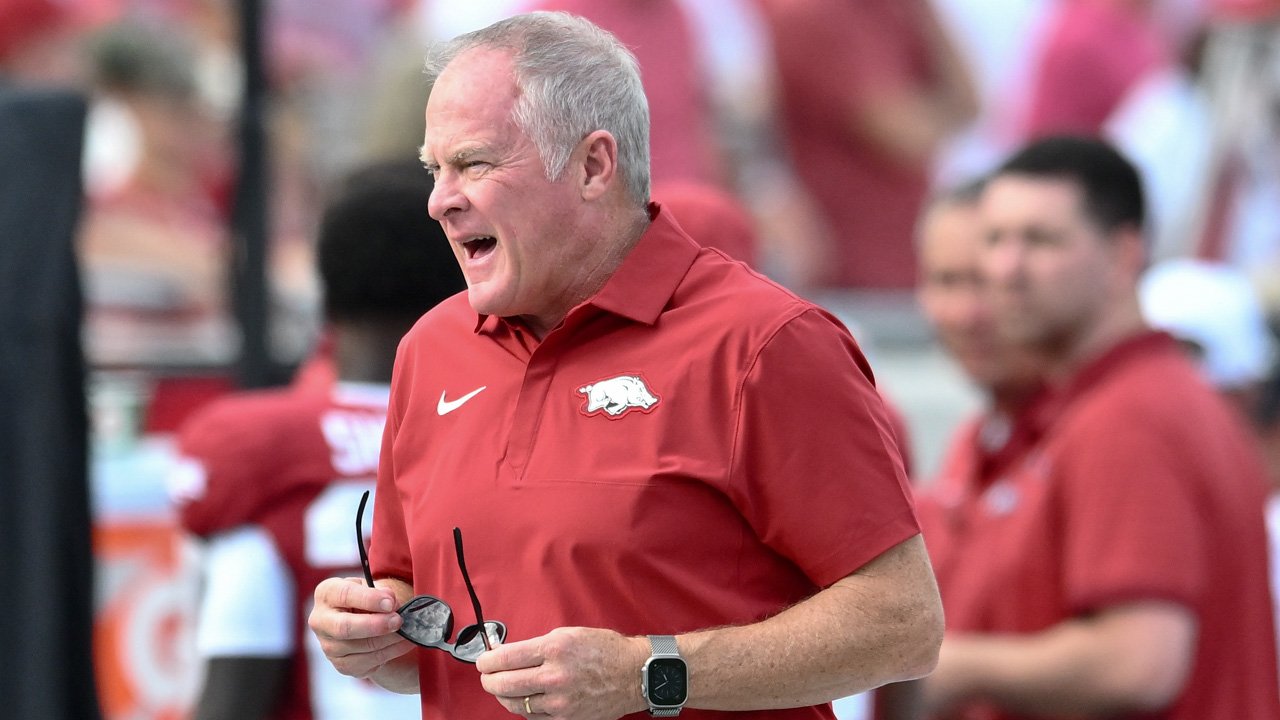News
Razorbacks ending Blueprint Sports deal, take NIL control in-house
Razorbacks are restructuring their approach to NIL deals as the university prepares to cut ties with Blueprint Sports in October

FAYETTEVILLE, Ark. — The University of Arkansas announced it will formally end its partnership with Blueprint Sports on Oct. 15 and take over all name, image and likeness (NIL) operations internally, signaling a major change in how Razorback Athletics manages athlete marketing agreements.
The university cited the House v. NCAA settlement as a turning point that opened the door for direct NIL involvement by schools rather than relying on outside collectives.
Arkansas had worked with Blueprint Sports since November 2023 through Arkansas Edge, a collective that pooled donor resources to support student-athletes.
The agreement allowed for corporate partnerships and fan memberships under the Blueprint Sports model.
University confirms end of partnership.
In a release, the university said it “began unwinding its relationship with Blueprint Sports following the House v. NCAA settlement earlier this year and will officially end the relationship October 15.”
The statement continued, “On July 1, 2025, the University of Arkansas assumed control of NIL operations previously managed by Blueprint Sports. Since that time, the two parties have explored future opportunities to work together, but a clear solution never developed.”
Hunter Yurachek, Arkansas’ athletics director, said the transition reflects a broader strategy to strengthen oversight and competitiveness in the NIL marketplace.
“Our overall operating budget ranked towards the bottom of the Southeastern Conference,” Yurachek said. “With that information, Coach Pittman did not have the resources he needed to appropriately compete in this conference right now.”
Under the new structure, Arkansas Athletics will manage NIL operations internally with the help of a new Director of NIL Strategy and continued partnership with Learfield’s Razorback Sports Properties for sponsorship and marketing efforts.
Rethinking collective partnerships
The decision comes as Blueprint Sports faces challenges across the country. Once responsible for more than 70 collectives, the company now lists only a handful of active partnerships.
According to SI.com, Arkansas Edge underwent multiple leadership changes—three executive directors in less than two years—which led to instability and uncertainty within the program.
While the university didn’t disclose financial terms of its Blueprint agreement, Sportico reported that Blueprint retained “75 percent of net direct revenue” in certain partnerships, a structure that has drawn scrutiny nationwide.
Arkansas officials believe the in-house model offers more transparency and direct control. The athletic department said the move allows it to “align NIL efforts more closely with the university’s values, compliance standards, and long-term goals.”
Yurachek said Razorback athletes have already demonstrated strong NIL participation through the department’s new system.
“We have had over $500,000 of agreements that have gone through The NIL GO system by way of our student-athletes,” he said. “The average value of those agreements is roughly $15,000 per athlete, compared to a national average of about $5,800.”
National NIL landscape evolving
Arkansas joins a growing list of programs moving away from third-party operators in favor of direct university oversight.
Schools such as Tennessee, Michigan, and Oklahoma have adopted similar models in the wake of the House settlement, which has reshaped the financial and regulatory structure of college athletics.
Sports attorney Darren Heitner noted the shift on social media, writing, “Arkansas athletics has announced it is ending its relationship with Blueprint Sports on Oct. 15.”
Blueprint Sports itself has undergone significant changes. The company’s affiliated nonprofit, the BPS Foundation, was dissolved last year after questions were raised about 501(c)(3) compliance in NIL operations.
The shift toward in-house NIL departments has been framed by some as a necessary step toward transparency, while others worry that universities will struggle to maintain donor engagement and manage the administrative workload previously handled by collectives.
Preparing for transition
Arkansas Athletics will assume full control of all NIL contracts, sponsorships, and marketing agreements beginning Oct. 15.
The new department-led structure will handle compliance, reporting, and coordination with student-athletes directly.
The athletic department said it aims to “enhance NIL opportunities for all student-athletes, maintain regulatory compliance, and strengthen the Razorbacks’ competitive position within the SEC.”
As Yurachek and his staff navigate the transition, the move will test the university’s ability to manage a complex and evolving NIL environment internally.For Arkansas, success could depend on its ability to deliver results both on the field and in the business of athlete branding.
Key takeaways
• Arkansas will officially end its NIL partnership with Blueprint Sports on Oct. 15 and bring operations under university control.
• The decision follows the House v. NCAA settlement, giving schools the ability to manage NIL deals directly.
• Athletic Director Hunter Yurachek said the program needs more resources and structure to remain competitive in the SEC.


